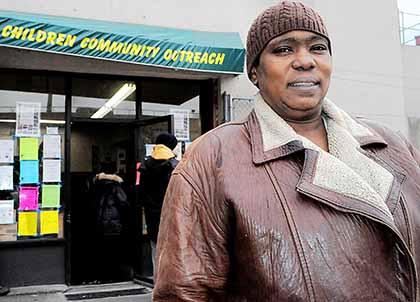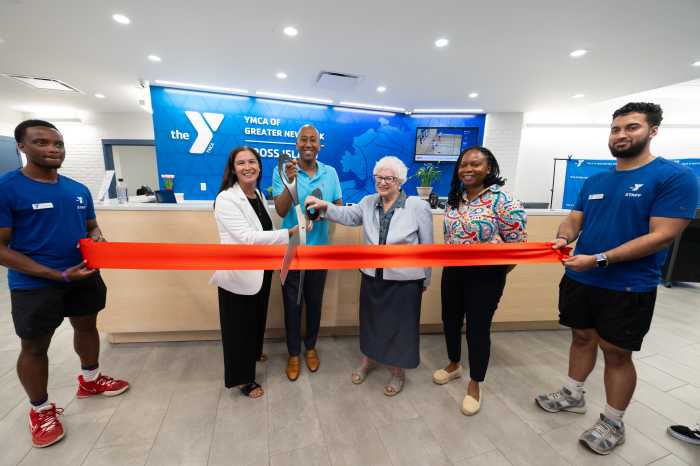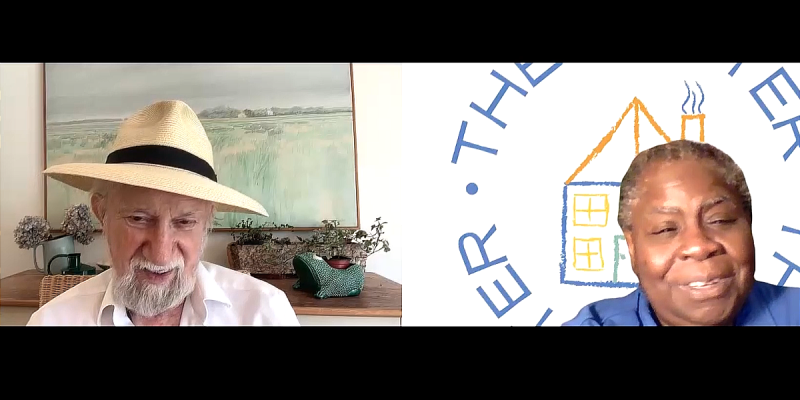By Joe Anuta
Patricia Seino has been surviving off of social safety net programs for the last 11 years, but not by choice.
Most days, she can be found at Hour Children, 36-11 12th St., a food pantry in Long Island City where she collects food for her family and volunteers her time.
She grew up in the area and has rarely ventured outside the neighborhood’s boundaries. Seino is 44 years old and lives with her father and son. Her troubles began in 1999, when she was diagnosed with depression. Constant hospital visits and medication prevented her from getting a job, especially after the economic downturn.
“I left the hospital, but then you become an outpatient. Every day it’s a new medication,” she said. “Some people are too sick to keep a steady job.”
It also had adverse affects on her family life.
“It was stressful, and stressed my relationship with my son,” she said.
Seino said it was hard to speak openly with her family about it.
“Mental health is a complicated thing,” she said. “Not many people want to talk about it.”
Despite the diagnosis, Seino has carved out a life that has been manageable, but devoid of frills. She lives in a rent-controlled apartment and takes care of her ailing father while supporting her 26-year old son, whom she had when she was 18.
For her illness, she receives a monthly disability allowance of $847 from the federal government, which is gone within days of arriving. Her budget is grimly spartan. She pays her rent, transportation costs and her phone bill, and then the money is gone.
“It’s all can afford. I’m always broke,” she said. “I hate being broke.”
Her father helps clean the apartment, which he rarely leaves. That means that Seino has to deal with social workers who she said scrutinize her life before giving out the aid that keeps her and her family alive.
“They pick you apart and it’s unfair,” she said, “Personal information needs to be personal.”
Seino makes a daily trip to food pantries in the neighborhood, which she said “take a big chunk out of being poor.”
But pantries like Hour Children have provided her with more than just nourishment: it has also illuminated a career path.
Seino has been volunteering regularly at the pantry for years and seeing how crucial the service is for the community has motivated her to pursue a career in social service. In addition to food pantries, she volunteered in a neonatal unit at a hospital.
She recently completed a 500-hour course through the International Center for the Disabled, where she studied about human service while helping the elderly. She has recently interviewed for a position with the Red Cross.
“I’m very excited,” she said. “It’s a chance to put my skills to use.”
Seino said that despite a tough 10 years she is hopeful about the next decade. She pictures herself a college graduate and working full time in the health or social service sector.
She wants to begin studying at a program offered through the Center for Substance Abuse, which begins on Feb. 13.
But that hardly makes the present any easier. She has to apply for loans and grants through the program since she can’t afford to enroll on her own, and so yet again her life hangs in the balance.
“I wish I were working, I wish I were in school,” she said. “Feb. 13 is a long way away.”
“I have to keep a sense of humor about it,” she said with a weary yet determined smile. “There’s so much I could worry about. But this smile is still going to be here tomorrow.”
Reach reporter Joe Anuta by e-mail at januta@cnglocal.com or by phone at 718-260-4566.




































